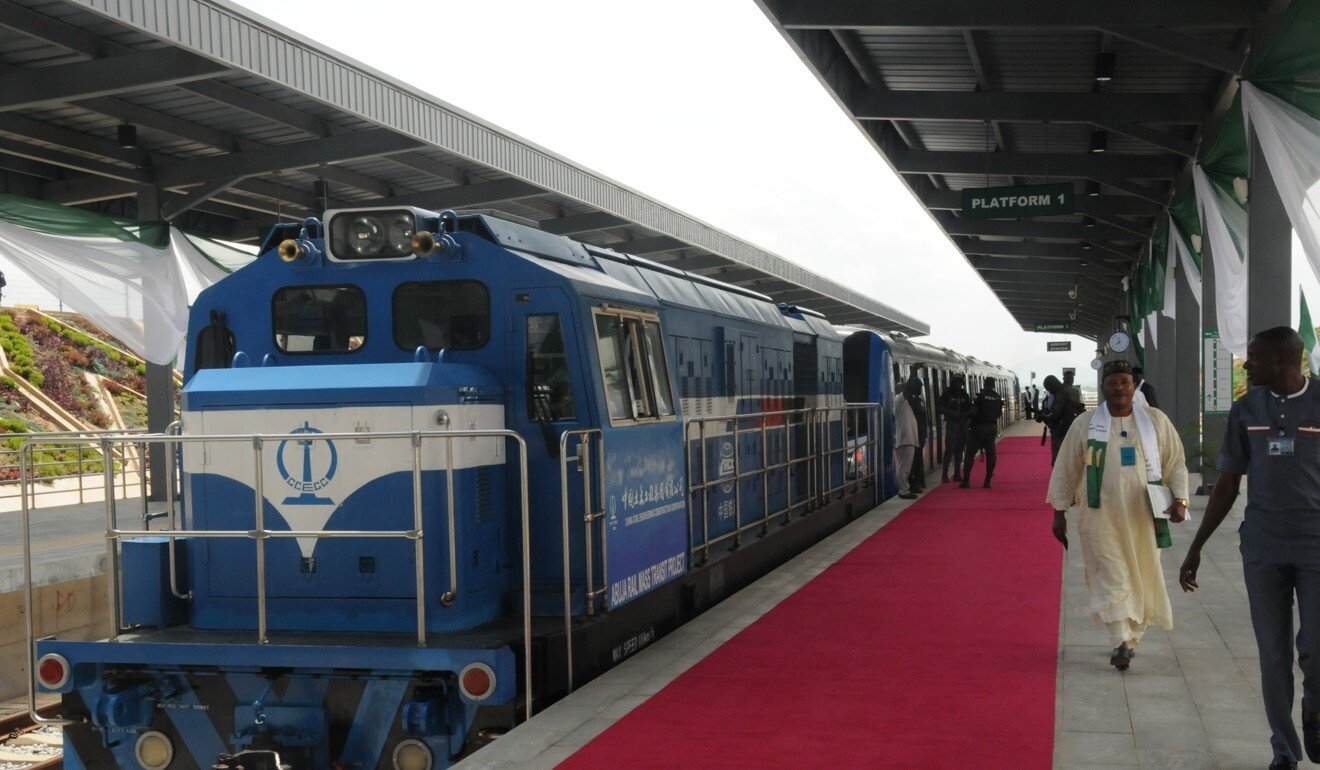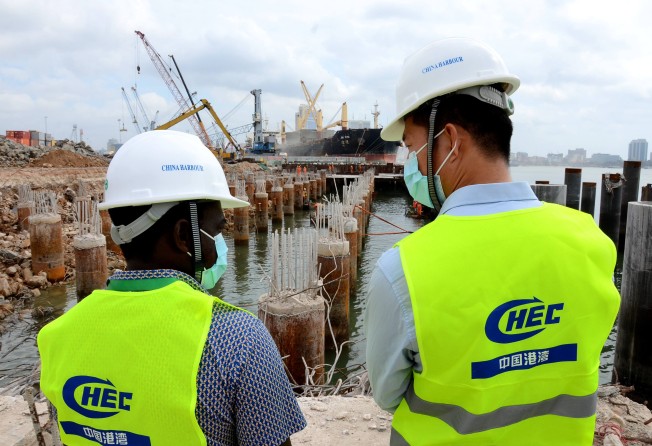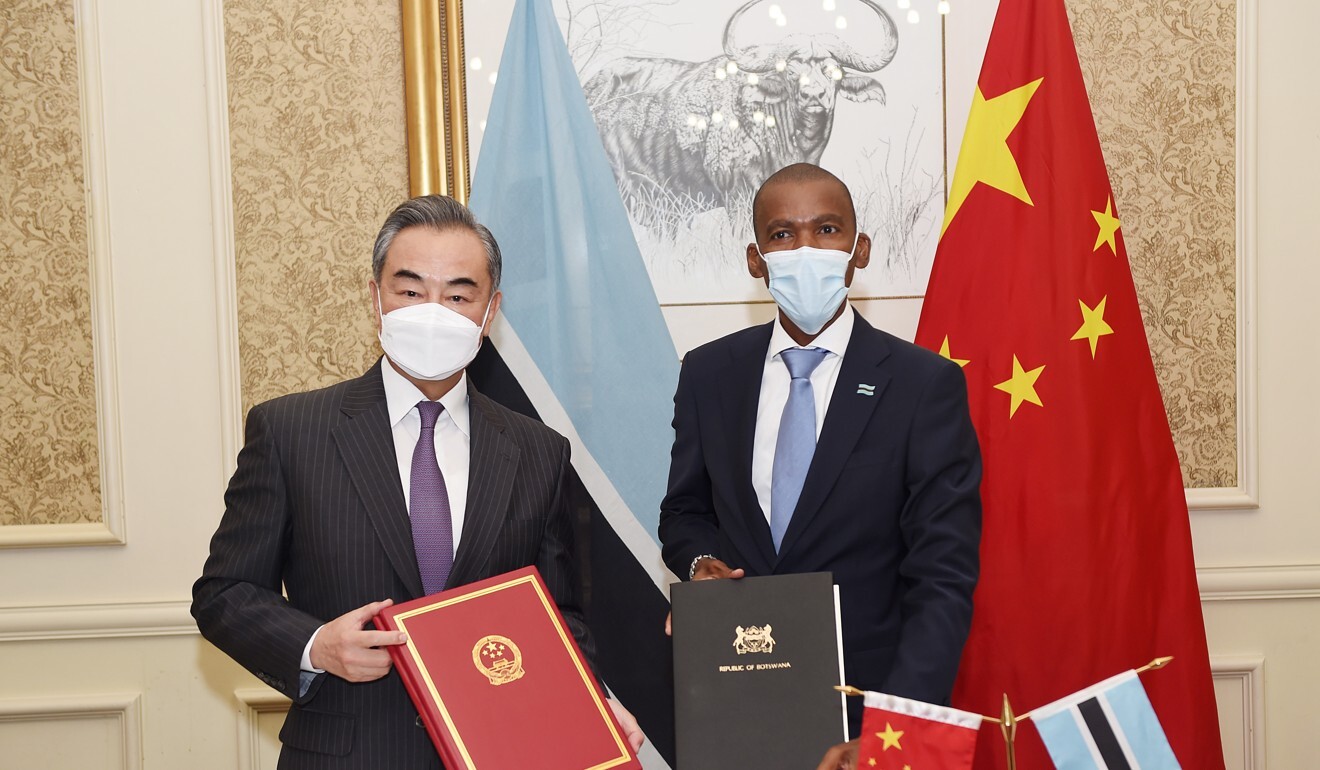
China sends Africa a signal that Belt and Road Initiative is still open for business
- Foreign Minister Wang Yi’s tour of the continent saw Botswana and the Democratic Republic of Congo joining the multibillion-dollar project
- Beijing was keen to use the trip to signal it is still willing to fund infrastructure projects and rebuild strained relationships

China’s Foreign Minister Wang Yi used his recent visit to Africa to signal that Beijing was still willing to fund infrastructure projects under the Belt and Road Initiative despite fears that the multibillion-dollar scheme faces budget cuts.
During last week’s tour, which ranged from the islands of the Seychelles to the continent’s most populous country Nigeria, Wang also signalled that China was ready to help boost Africa’s industrial capacity and expand trade.
“China is prepared to help Africa increase its infrastructure, trade and financial connectivity,” he told a briefing in Tanzania on Friday.
He also signalled that Beijing was ready to step up its military and security cooperation with Africa and work towards a political settlement of conflicts, saying: “China is prepared to help Africa enhance peacekeeping and counterterrorism capacity, in a joint effort to build a secure Africa.”
Analysts said the visit, which also took in the Democratic Republic of Congo and Botswana, was intended to cement China’s diplomatic and economic influence on the continent and repair frayed relations with some countries.
The Chinese foreign ministry said on Sunday that Wang will follow the tour by visiting Myanmar, Indonesia, Brunei and the Philippines this week.
Yun Sun, director of the China programme at the Stimson Centre in Washington, said it had become a tradition for Chinese foreign ministers to start the year with a trip to Africa, and this year offered a chance to ease tensions caused by growing concerns over debt and the discrimination some African nationals suffered in the southern city of Guangzhou at the height of the Covid-19 outbreak last year.
“Given the suspicion that China’s economic engagement with Africa will decrease, I am not surprised that China wants the trip to ramp up the image of engagement, of China’s active involvement and unchanged interests,” Sun said.

Ovigwe Eguegu, a policy analyst at the Beijing-based consultancy Development Reimagined, said Beijing was keen to show that China-Africa cooperation has not been derailed by Covid-19.
He said Chinese leaders have made 99 visits to the continent since 2007, adding: “The key will be for African leaders to seize the opportunities for engagement, and steer China to work together with African countries to achieve both national and continental goals.”
During the visit to Nigeria, a major importer of Chinese products, Wang discussed the procurement of Chinese-made Covid-19 vaccines and signed a memorandum of understanding establishing an intergovernmental committee to coordinate cooperation on a wide range of issues.
The two countries are also discussing the possibility of a direct flight route between Nigeria and China.
The tour also resulted in both the Democratic Republic of Congo and Botswana agreeing to join the Belt and Road Initiative.
In return, the DRC saw interest-free loans worth US$28 million that matured in 2020 being cancelled and also received US$17 million in financial support. Wang also promised that Beijing would fund infrastructure projects, mostly in DRC’s energy and mining industry, where Chinese companies have already invested more than US$10 billion in the past decade.
The country is the largest cobalt producer in the world, accounting for about 60 per cent of total production.
Eguegu said the DRC and Botswana signing up was “great for momentum and shows African countries believe in the potential of the initiative. And with the global economic recovery under way, BRI activities are likely to resume”.

Tim Zajontz, a research fellow in the African Governance and Space project at the University of Edinburgh, said it was “a diplomatic success for Beijing and serves Chinese efforts to counteract growing public perceptions that the initiative might lose momentum”.
He continued: “With the membership of the Belt and Road Initiative in Africa growing now to 46 countries, the Chinese government can plausibly maintain its narrative that it is successfully steering a new era of globalisation.”
He said Botswana will be of secondary importance to the project due to its geographical location and its relatively small population, but the decision to join still had symbolic value to Beijing.
“Gaborone had been one of the last fierce China sceptics on the continent under former President [Ian] Khama,” Zajontz said.

02:40
If China’s coronavirus vaccines work, which countries will get them and for how much?
He added that Beijing “could now reap the fruits of Beijing’s intensified political and economic engagements with Botswana since coming into office of President [Mokgweetsi] Masisi”.
Recently, Wang said that Beijing had signed debt service suspension agreements with 12 African countries and provided waivers on matured interest-free loans for 15 African countries.
Zajontz, who is also a research fellow in the Centre for International and Comparative Politics at Stellenbosch University in South Africa, said the cancellation of debts served as a signal towards other African debtors that China remains an accommodating creditor.
But he warned it will remain a politically sensitive issue for the foreseeable future with critics warning that countries are running up unsustainable debts to fund infrastructure projects.
“The Chinese government will face the increasingly difficult task of maintaining the image of a benevolent development financier for the Global South, whilst simultaneously cashing in on its loan-debt investments along the belt and the road,” Zajontz said.
In Tanzania, Chinese firms won a US$1.3 billion contract to build a major rail link while in the Seychelles Wang said Beijing will cooperate on seafood farming, marine scientific research and shipping, as well as encouraging more Chinese tourists to visit.
Zajontz said Wang’s visit to Tanzania confirmed Beijing’s keen interest in rebuilding its relationship with the country after a number of planned initiatives ran into trouble during an anti-corruption drive.
He said the rail link would take on increasing strategic importance after a similar project in Kenya stalled and there “seems to be movement on the Tanzanian side” regarding plans to build a mega-port and special economic zone in Bagamoyo.